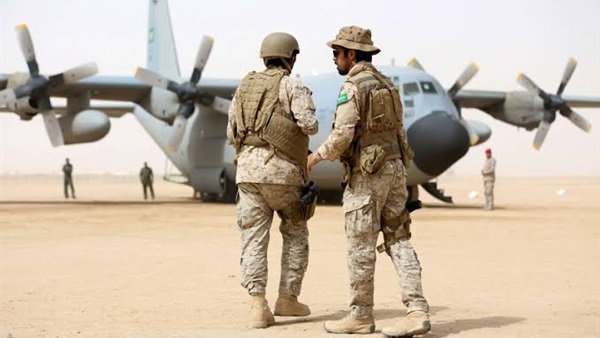The security belt data revealed details of the battles being waged by the Arab Coalition forces to restore stability in southern Yemen, which ended with the defeat of the reform forces of the Muslim Brotherhood allied to the Houthi militias, and took control of these areas.
The Reference monitors the ten most important points summarizing the main events taking place in the south of Yemen:
- The Houthi militias, with the support of the Muslim Brotherhood reform, are seeking to extend Iran’s control and influence in the country, in a clear breakthrough aimed at the Arab project led by the coalition countries.
2 – Muslim Brotherhood reform militia affiliated to the terrorist Ali Mohsen al-Ahmar said that there is bombing by the air, which is one of the lies promoted by the Brotherhood and the Houthis coveted in power.
- The Iranian-backed Houthi militias have used terrorist groups such as Al-Qaeda and ISIS in order to achieve their objectives against the Arab coalition forces supporting legitimacy in Yemen.
4 – The security belt forces work to maintain the security and stability of the province of Lahj and its directorates, and inspect vehicles and check the identities of those coming to the province, and work to strengthen their deployment in the main lines and entrances to the center of the province. The city of Hawtah capital of the province of Lahj also witnesses a state of stability and calm, and commercial shops are getting back to normal.
5 – The battle began in Abyan. The security belt forces of the Southern Transitional Council advanced towards Jaar, and after limited clashes with the reform forces were able to take full control of the city, as the security belt forces began to advance from the flag point to Doves, and the road between Abyan and Aden.
6 – The security belt forces settled the confrontations, and took full control of the city of Zanzibar, the capital of Abyan province, after the expulsion of remnants of the reform forces, and the continuation to follow them in other places.
- The United Arab Emirates, responding to the Houthis’ allegations, said it would not hesitate to protect the Arab coalition forces “when necessary and reserve the right to respond and defend itself.”
8.The UAE said that the militias posed a direct threat to the security of the coalition forces, which necessitated targeting terrorist militias with specific air strikes, and in accordance with the rules of engagement based on the Geneva Convention and international humanitarian law, on 28-29 August 2019. It also noted that the targeting was based on information that the militias targeted elements of the coalition; which required a direct response to spare the troops any military threat.
9 – Intelligence agencies have monitored – in the past weeks – terrorist cells that have begun to operate in Yemeni areas, which effectively threatens the great efforts made by the coalition to eliminate the threat of terrorism in Yemen, according to the UAE statement.
10- The UAE expressed its deep concern over the situation and tension in southern Yemen, calling on the international community to act to ensure that terrorist organizations do not exploit the current situation and return to the Yemeni arena to carry out its terrorist attacks, especially with increasing frequency of attacks against coalition forces and civilians.








































admin in: How the Muslim Brotherhood betrayed Saudi Arabia?
Great article with insight ...
https://www.viagrapascherfr.com/achat-sildenafil-pfizer-tarif/ in: Cross-region cooperation between anti-terrorism agencies needed
Hello there, just became aware of your blog through Google, and found ...